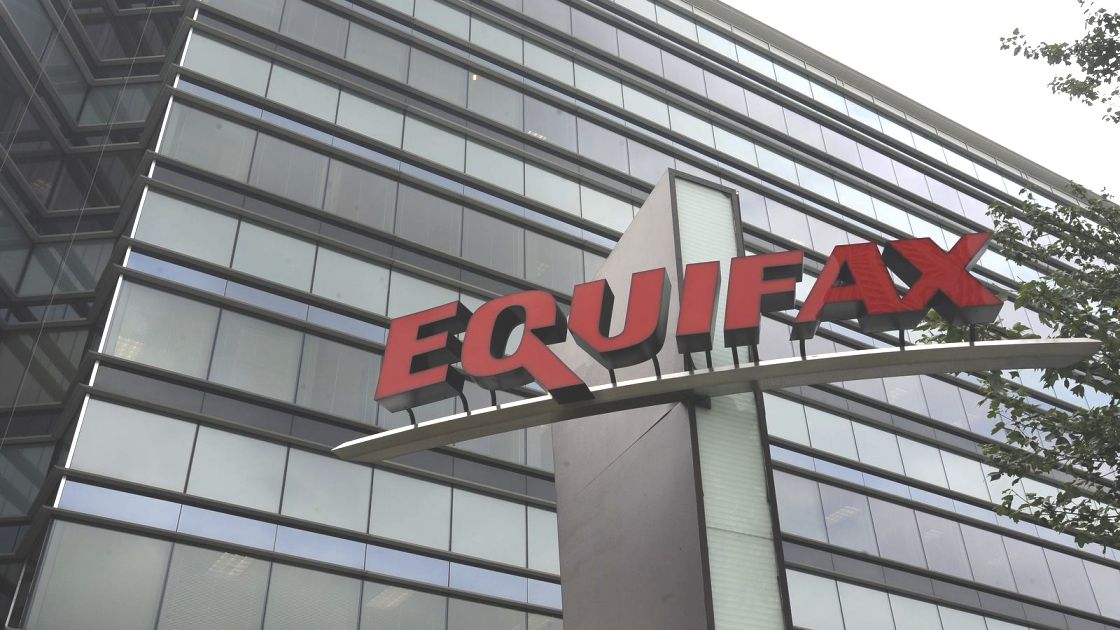How Credit Reporting Agencies Work & Why They Matter
Your credit report can make or break major financial moves—buying a house, getting a car loan, or even landing a job. But who actually compiles these reports, and how accurate are they?

Let’s break down what credit reporting agencies do, why they’re so important, and how to protect yourself from errors that could cost you thousands.
What Is a Credit Reporting Agency?
A credit reporting agency, also called a credit bureau, collects and maintains data about your credit history. This includes information like how much debt you owe, whether you pay your bills on time, and how long your credit accounts have been open.
Lenders, landlords, and even some employers use this data to assess how responsible you are with credit. When you apply for a loan, rent an apartment, or sometimes apply for a job, the decision-makers often rely on the reports these agencies provide.
Credit reporting agencies don’t decide whether you’re approved or denied. They supply the data that others use to make those decisions.
The Big Three Credit Bureaus
Most people’s credit reports come from one or more of the three major credit bureaus in the United States. Each collects similar information but may receive data from different lenders or update their records at different times.
Equifax
Founded in 1899, Equifax is one of the oldest credit bureaus. It collects data from lenders, credit card companies, and public records. Equifax was also at the center of a major data breach in 2017, which affected millions of consumers.
Experian
Experian started in the late 1800s and has grown into a global credit reporting agency. Like Equifax, it gathers information about credit accounts, payment history, and public records. Experian also offers credit monitoring and identity theft protection services.
TransUnion
TransUnion began as a holding company in the 1960s before becoming a credit bureau. It collects data similar to Equifax and Experian but may have slightly different information depending on which lenders report to them.
Even though all three credit bureaus collect the same types of data, your reports can vary between them. Some lenders only report to one or two agencies, and timing differences can also lead to discrepancies.
How Credit Reporting Agencies Collect & Report Information
Credit reporting agencies gather data from several sources to build your credit file. This data helps lenders, landlords, and others assess your creditworthiness.
Sources Of Data
Credit bureaus receive information from lenders, credit card companies, collection agencies, and public records. Some utility and telecom companies also report payment histories.
Types Of Information Included
Your credit reports typically include:
- Personal information – name, Social Security number, birthdate, addresses, and employment history
- Account history – details about loans, credit cards, payment history, and balances
- Credit inquiries – a record of who has checked your credit
- Public records – bankruptcies, foreclosures, and some civil judgments
How Often Reports Are Updated
Lenders usually report new information every 30 to 45 days. However, reporting schedules can vary, so some accounts might update more or less frequently.
Why Your Credit Reports Can Vary Between Agencies
Even though the three major credit bureaus collect similar data, your reports can look different depending on a few key factors.
Different Data Furnishers Reporting to Different Credit Bureaus
Not all lenders report to every credit bureau. Some might only send data to one or two agencies, leading to incomplete information on certain reports.
Timing Of Updates
Each bureau updates its records based on when they receive data. A payment reported to one bureau might not appear on another report until later.
Errors Or Omissions
Mistakes can happen. Missing accounts, incorrect balances, or outdated information can all cause differences between your credit reports.
Specialty Credit Reporting Agencies You Should Know
In addition to the three main credit bureaus, there are specialty credit reporting agencies that track different types of financial behavior.
- ChexSystems – Focuses on checking and savings account activity. Banks often use ChexSystems to screen new account applicants.
- Innovis – Similar to the big three but used less frequently by lenders. Innovis also gathers data on credit accounts and public records.
- CoreLogic – Collects data related to housing, including rental history, mortgage performance, and property records.
- LexisNexis – Compiles public records, insurance claims, and background information. It’s often used by landlords, insurers, and background check services.
When Specialty Reports Matter
These reports can affect rental applications, insurance premiums, and even job opportunities. If you’ve been denied for any of these, checking your specialty reports can help identify any problems.
How Credit Reporting Agencies Affect Your Credit Score
Credit reporting agencies don’t calculate your credit score themselves, but the information they collect feeds directly into scoring models.
The Connection Between Credit Reports & Scores
Your credit report contains the data that scoring models use to calculate your score. This includes payment history, amounts owed, length of credit history, new credit, and credit mix. If the data on your reports is inaccurate, your score may not reflect your true credit habits.
FICO Vs. VantageScore Models
Most lenders use FICO scores, but some also consider VantageScore models. Both use similar data, but may weigh factors differently. For example, VantageScore can score consumers with shorter credit histories, while FICO requires more account data.
How Inaccuracies Can Impact Credit Scores
Incorrect late payments, accounts that don’t belong to you, or outdated information can lower your score. Even small mistakes can affect your chances of getting approved for loans or securing favorable interest rates.
How to Check Your Credit Reports
Checking your credit reports regularly can help you spot errors and keep track of your financial profile.
AnnualCreditReport.com (Free Credit Reports)
You’re entitled to one free credit report per year from each of the three major bureaus through AnnualCreditReport.com. As of recent years, free weekly reports have also been available.
How Often to Check
It’s a good idea to review your credit reports from all three bureaus at least once a year. If you’re planning a major purchase or have been denied credit, you may want to check more often.
Why Monitoring All Three Credit Reports Matters
Because lenders may report to different bureaus, each report can contain slightly different information. Monitoring all three helps ensure you catch any discrepancies or errors that could impact your credit score.
How to Dispute Errors on Your Credit Reports
If you find a mistake on your credit report, it’s important to address it quickly. Errors can affect your ability to qualify for loans, credit cards, housing, and even employment.
Step-by-Step Dispute Process
- Get a copy of your credit report and identify the error.
- Gather any supporting documents, such as payment records or account statements.
- Submit a dispute to the credit bureau online, by mail, or by phone.
- Clearly explain why the information is incorrect and provide your evidence.
Timeframes Agencies Have to Respond
Once you file a dispute, credit bureaus generally have 30 days to investigate and respond. In some cases, the process can take up to 45 days.
What to Do if Disputes Are Rejected
If the bureau doesn’t correct the error, you can:
- Contact the creditor directly to resolve the issue.
- Add a statement of dispute to your credit report.
- File a complaint with the Consumer Financial Protection Bureau (CFPB) if necessary.
How Credit Reporting Agencies Are Regulated
Credit reporting agencies must follow federal laws that protect consumers and ensure the accuracy of the information they collect and share.
Fair Credit Reporting Act (FCRA) Overview
The FCRA is the main law that governs credit reporting. It gives consumers the right to access their credit reports, dispute errors, and limits who can view credit information. The law also sets time limits for how long negative information can stay on your report.
Consumer Financial Protection Bureau (CFPB) Oversight
The CFPB oversees credit reporting agencies and enforces compliance with the FCRA. It also handles consumer complaints and can take action against agencies that violate the law.
Your Rights as a Consumer
Under the FCRA, you have the right to:
- Access your credit reports
- Dispute inaccurate or incomplete information
- Be notified if information in your report is used to deny credit, insurance, or employment
- Place a security freeze or fraud alert on your reports
Final Thoughts
Credit reporting agencies have a big influence on your financial opportunities, from getting approved for loans to securing housing. Yet, many people rarely think about how these agencies work or how to make sure their reports are accurate.
By checking your credit reports regularly and knowing your rights, you can catch mistakes early and make sure your credit history reflects your true financial behavior.
Frequently Asked Questions
How long can credit bureaus report your information?
Most negative information, such as late payments or accounts in collections, can stay on your credit report for up to seven years. Bankruptcies can be reported for up to 10 years. Positive information, like on-time payments, can stay on your report indefinitely or as long as the account remains open and in good standing.
Does checking your own credit report lower your credit score?
No, checking your own credit report is considered a soft inquiry and does not affect your credit score. You can review your reports as often as you like without any impact on your credit.
Can you remove accurate negative information from your credit report?
Generally, no. Accurate negative information must remain on your report until the time limit expires. However, you can request goodwill adjustments from creditors or negotiate pay-for-delete agreements with collection agencies, though success is not guaranteed.
What is a credit freeze, and how does it work?
A credit freeze restricts access to your credit report, making it harder for identity thieves to open new accounts in your name. You can place or lift a freeze for free at each of the three major credit bureaus. Freezing your credit does not affect your score or prevent you from using existing credit accounts.



